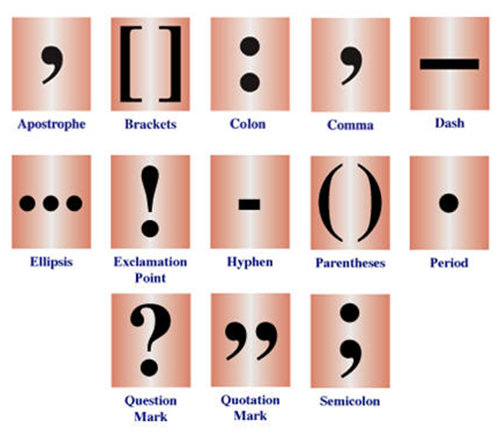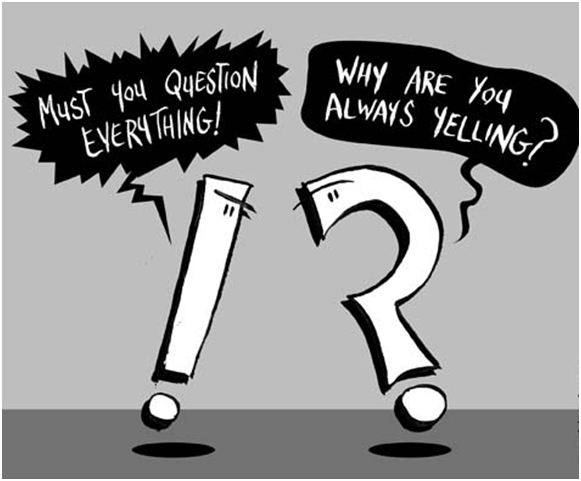Why is Daily Practice Important to Learn a New Language?
Learning a new language is always exciting, especially if you put in some creativity and loads of practice. Take a small trip down the memory lane, when you were younger about ten years old. Back in school we all were made to write one word about ten to fifteen times to make sure we've got the spelling right and that we remember it perfectly well.
Similarly, the repetitive method is extremely crucial even today when you are learning English, as it helps you to improve your communication skills and gives you a confidence about how to speak in English fluently.
Write it down:

As and when you come across some words/ sentences that you know and are not able recollect or are finding it difficult, it is only smart that you write it down. Writing it down will help you maintain a tab on your weak points and as and when you find the time you can refer to those notes and keep reading out those sentences/ words aloud in a repetitive manner to embed them in your memory.
Enroll for online English speaking courses:

Enrolling for English speaking courses online gives you a great opportunity to opt for customized classes that suit your shortcomings. This is an extremely effective way of learning English online and that too straight from the professionals who cater to this field. These online courses meet the different needs of different people and are best suited for individuals who prefer a different learning style other than the conventional ones.
Innovative Practice Techniques:
If you're bored of the conventional styles of practicing English, bring in some creativity. You can add that needed spice of motivation by adapting new practice techniques like:
o Have a conversation in English aloud with yourself in front of the mirror.
o Call a close friend and have a hearty chat with him/ her in English.
o Play English oriented games like scrabble.
o Speak to your siblings in English.
o Read aloud difficult words from the dictionary repeatedly to learn them.
o Read up on inspirational quotes and update them as your social networking status.
It was once said by a very smart man that, "Practice makes a man perfect". Just follow these simple tricks and innovative techniques to assist you in acquiring the English language and in no time, you will be able to improve your English speaking skills without any problem. Keep Practicing!
About eAgeTutor:
eAgeTutor.com is a premier online English learning institute. eAge's world class faculty and ace communication experts, from around the globe, help you to improve in an all-round manner. Assignments and tasks based well researched content developed by subject matter and industry experts can certainly fetch the most desired results for improving spoken English skills. In this age of effective and advance communication technology, online spoken English programs are the most effective and convenient way to learn English.
For further information on our online English speaking courses or to experience the wonders of the virtual classroom, fix a demonstration session with our tutor.
- By Monika Agarwal
Related Topics:
• How to make English Learning a Fun Process?
• How to Speak Clearly and Fluently?
Learning English through Music - Go the Lyrical Way!
How to improve spoken English?
This is one of the most common questions that we face on a day-to-day basis. As an English speaking course provider, we have researched and identified newer ways that can help students to improve their communication skills. One such experiential way is to go lyrical.
Often, students get bored learning grammar and other nuances of English. In such a scenario, a little dose of fun is always welcome. So, let us join together in a fun and entertaining journey to improve your English speaking.
Principles of learning English
Before we venture deep into how music can help you improve your vocabulary, let us first look at the principles you need to follow on this route.
1. Have fun while learning English
It is essential that you enjoy this activity, albeit, the whole point would be lost. Make sure you are passionate about the kind of music that you choose to listen to, to improve your English learning.
2. Practice 20 minutes every day
It would be much simpler to follow this principle if you preach the first rule. Learning a new skill, especially a new language, takes a lot of effort and time. Although learning English may not eat up a lot of your time, but you may have to commit a small portion of it every day. Unless you practice each day without fail, you would not reap significant results.
3. Have your reasons in place
It is important that you have your reasons in place for learning English. It is not something that you are doing for the society, at large. So, come up with a strong motivation that will keep you on track to learning English.
Now, just turn up the volumes and put on your headphones, the most enjoyable English learning class is about to begin.
The best way to learn English - the no stress way
Set a goal. The goal should be to have an enjoyable time while you improve your vocabulary. Get used to hearing English. It is a known fact that people who enjoy English music have good knowledge of the language as well. This is because you are exposed to a humongous library of new words. The goal is to know their meaning and their usage.
In addition, while you hear music, you can also understand the feelings. This is the nature of music; it allows you to connect the feelings, words, meanings and stories, all at the same time.
Let's look at the lyrics of a popular song:
Artist: Eurythmics
How many sorrows
Do you try to hide
In a world of illusion
That's covering your mind?
If you listen to this song and pay attention to the lyrics, you would learn a lot of new words. This song is simple, the pronunciation is clear and the words are easy to understand.
If you come across a word like illusion, look up for its meaning online. Wikipedia definition, "An illusion is a distortion of the senses, revealing how the brain normally organizes and interprets sensory stimulation."
Now, relate it with the lyrics of the song, the concept would be clearer. Isn't it easy to learn new words and improve your English vocabulary this way? Learn English for free by listening to your favorite songs. Get started now!
About eAgeTutor:
eAgeTutor.com provides English courses online for people who want to improve spoken English. Our expert tutors from around the globe undertake the online spoken English classes. A mix of interactive and fun-based programs is developed for students to help them improve their English language.
For further information on our online spoken English courses, please visit www.eagetutor.com.
- By Monika Agarwal
Related topics:
How to learn English through listening?
Golden Rules for Improving Spoken English
How to Improve Communication Skills?
Do you feel shy to communicate with strangers? Do you get jitters with the thought of carrying out a conversation with your boss? Are you tongue-tied before a presentation in your office?
If your answer is YES to all these questions, then you are definitely scared of your communication skills. Many people worry about their poor communication skills to an extent that they stop communicating altogether. If you are making this grievous mistake, let me tell you it is not the right way to improve your conversation skills.
Effective communication is important in all spheres of life, both personal and professional. You cannot understand a person/subject/topic if you are unable to communicate properly. To rise and shine in the dynamic business world, good communication is a requisite. Let's look at some of the ways through which you can improve English communication.
Learn the basics
Communication means transfer of messages between a sender and a receiver through various modes, including written words, spoken words and nonverbal cues. Confidence is another essential aspect of effective communication. You should be confident that your point is worthwhile to the subject. Be aware of your opinions and stay confident in your expression. These can equip you to convey your message effectively. Start your practice of effective communication by carrying out simple conversations. Each day and every minute you can practice to better your conversational skills. Just stay on track and never give up, no matter how bleak the road ahead appears.
1. Keep your audience engaged
Communication is a two-way road and the response of your audience decides your fate. So, make an eye contact whenever you are with people. You may be listening, or speaking, it is important to maintain eye contact intact. This is the key to successful communication. Eye contact establishes the interest and at the same time motivates the speaker to go on. Hand and facial gestures are another way to support your conversation. Your gestures can speak more than your words, so pay attention. Keep your facial and hand gestures as well as your tone in sync.
2. Effective listening is vital
To improve your English communication skills it is important to develop effective listening skills first. A successful listener is the one who can decode not only the words that are being communicated but also the feelings and emotions that comes with it. Do not just pay attention to the end of the sentence, so that you can take ahead the conversation. The rule is to talk less and listen more.
3. Enjoy the power of words
When we say enjoy, we literally mean it. Words are a powerful tool and when said in the right manner, they can have the right impact. So, don't just rush with your words, speak clearly and precisely. Never mumble to get away from the conversation. If you are being asked all the time to repeat a sentence or word, then you are not communicating effectively. Make use of simple words and pay attention to your pronunciation. Speak with the right pace; if you rush with your words, people will think that you are a nervous speaker. So, be careful with your pace.
Hope the above English tutorial is helpful in improving your English communication skills.
How to Use Punctuation Correctly? Part - I
One of the most common and basic mistake that most of us commit while writing is the wrong use of punctuation marks. In today's modern age, when we are more fluent with the SMS language and the slang terms, we have forgotten the fundamentals of English like Punctuation. How many of us can proudly say we know A-Z about punctuation. Let's consider this article as your free English learning guide to punctuation.
Definition of punctuation
Wikipedia definition
"Punctuation marks are symbols that indicate the structure and organization of written language, as well as intonation and pauses to be observed when reading aloud."
The Oxford dictionary defines, "the marks, such as a full stop, comma, and brackets, used in writing to separate sentences and their elements and to clarify meaning."
In simple words, a set of symbols that are used in writing to guide a reader know the structure of a sentence. Punctuation guides us to change the rhythm, highlight a word in our speech and show the right expression. The common punctuation marks in English include the comma, apostrophe, period, quotation mark, exclamation mark, question mark, bracket, hyphen, dash, semicolon, ellipsis, and colon. Each punctuation mark has a specific purpose and use in the English language. Some may have varied meanings; based on the context they are used.
Punctuation rules 
End of the sentence punctuation
Every sentence that you write has to end somewhere. This ending punctuation mark can be a full stop or period, exclamation mark, question mark or an ellipsis. These punctuation marks terminate a sentence. The default terminal punctuation mark is a period or a full stop.
Ex: He lives in Chicago
The period is used here to finish the sentence without disclosing any other meaning.
Question mark: When you end a sentence in a question mark, you suggest an inquiry or an interrogatory remark.
Ex: What is your name?
The question mark is used to inquire a person's name.
Exclamation mark: It is used to suggest excitement or emphasis in a sentence.
Ex: I can't believe I am going to UK!
Ellipsis: It is a punctuation that is used when some part of a sentence is being omitted; usually used in quotes.
Ex: "[...] the President was excited as he laid out the growth policies in the agricultural sector."
Semicolon (;) vs. colon (:)
We all have studied the use of Semicolon while learning English grammar in our school. However, do you understand the difference between a colon and a semicolon? A semicolon is used when the writer wants to link two related, but independent clauses. There is always an argument, why not a period but a semicolon. Of course, if you think your sentence is too wordy, you can use a period, but avoid using it if you think it will create a strong break between the sentences.
Example: Several fast food restaurants can be found within the cities: London, England; Paris, France; Dublin, Ireland; and Madrid, Spain.
Now, let's learn the English lesson on the use of the colon. This punctuation mark is used to introduce a list. It can be used with ratios, titles and subtitles of books, hours and minutes.
Example: The concert begins at 21:45.
The following are our services:
We shall continue our free English learning session in our next blog on how to use English punctuation correctly. Till then, practice and observe the above punctuation marks to improve your English skills.




